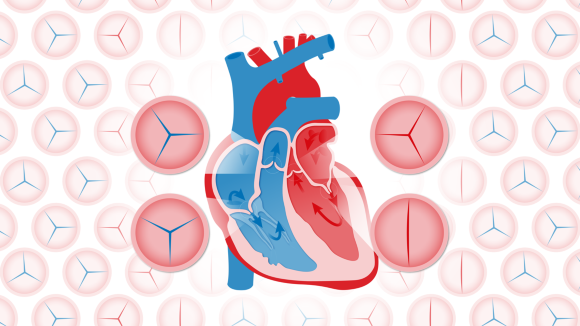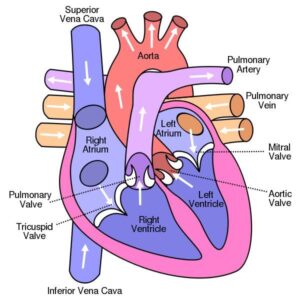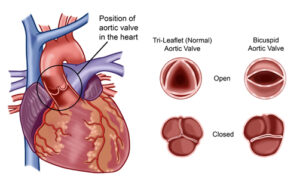What is heart valve disease and what does that mean for me?
12 March 2022 / 9:01 am

What is heart valve disease?
There are four main heart valves which control the flow of blood within the heart. These open and close as the heart contracts to keep blood moving forward through the circulation. Valvular heart disease describes an abnormality of one of the heart valves. Valve disease is usually due to ‘wear and tear’ but infection, heart attacks, heart failure and abnormally formed valve can also cause it. Valves can become narrowed (stenotic) and / or leaking (regurgitant). The valve abnormality is classified as mild, moderate or severe. Small leaks on some valves are considered a normal finding.

How common is it?
Valvular heart disease becomes increasingly common with increasing age, affecting approximately 1 in 40 of the population at some point. Mild valve disease is seen in half of the population by the age of 80.
What symptoms might I get?
If the valve abnormality is mild or moderately affected then symptoms are uncommon. Severe valve disorders do not always cause symptoms but, if they do, then breathlessness, palpitation, ankle swelling are commonly reported.
Will I need treatment?
It depends on the type and severity of the valve abnormality. Most patients with mild valve abnormalities do not require treatment – for example, only about 10% of patients with mitral valve prolapse will require surgery. If the valve is severely abnormal and is either causing symptoms or changes to the way the heart functions then surgery may be necessary. Drug therapy to lower blood pressure can help the heart function and potentially delay the need for surgery.
What extra tests are required?
There are a number of different tests that may be required depending on the severity of the valve abnormality. Most patients will require a series of heart ultrasound scans (echocardiogram) to monitor the condition. Other tests that may be necessary include an exercise tolerance test, ambulatory ECG monitor and a cardiac MRI.
Is it hereditary?
Usually not but bicuspid aortic valves can be inherited.

Does this affect my life expectancy?
If you have a severe valve abnormality that is causing symptoms then left untreated it can reduce your life expectancy.
What happens next?
If you have been diagnosed with valvular heart disease then, depending on the severity, you can be recommended to see your GP or a local cardiologist.
Useful links
More Posts
16 March 2024
Developing a new strategy for healthy Islanders
4 February 2024
A digital health diary for Jersey
27 December 2022
Utilising artificial intelligence in cardiology practice
12 June 2022
Under the bonnet – time for your heart’s MOT
12 January 2022
Preventing heart disease using augmented digital health intelligence
1 October 2021
How heart health has been impacted by COVID-19
1 August 2021
The importance of the rhythm of your heart
21 June 2020
What is atrial fibrillation?
8 April 2020
Coronary heart disease and risk of heart attacks
11 January 2020
The Era of Immersive Health Technology
22 September 2019
The heart and stress
18 August 2019
Screening for Atrial Fibrillation and the Role of Digital Health Technologies
20 November 2018
Ectopic beats – how many count?
28 July 2018
How can immersive VR and AR technologies improve your physical and mental health?
7 March 2018
“The patient takes charge” – enhanced care with Digital Health technologies